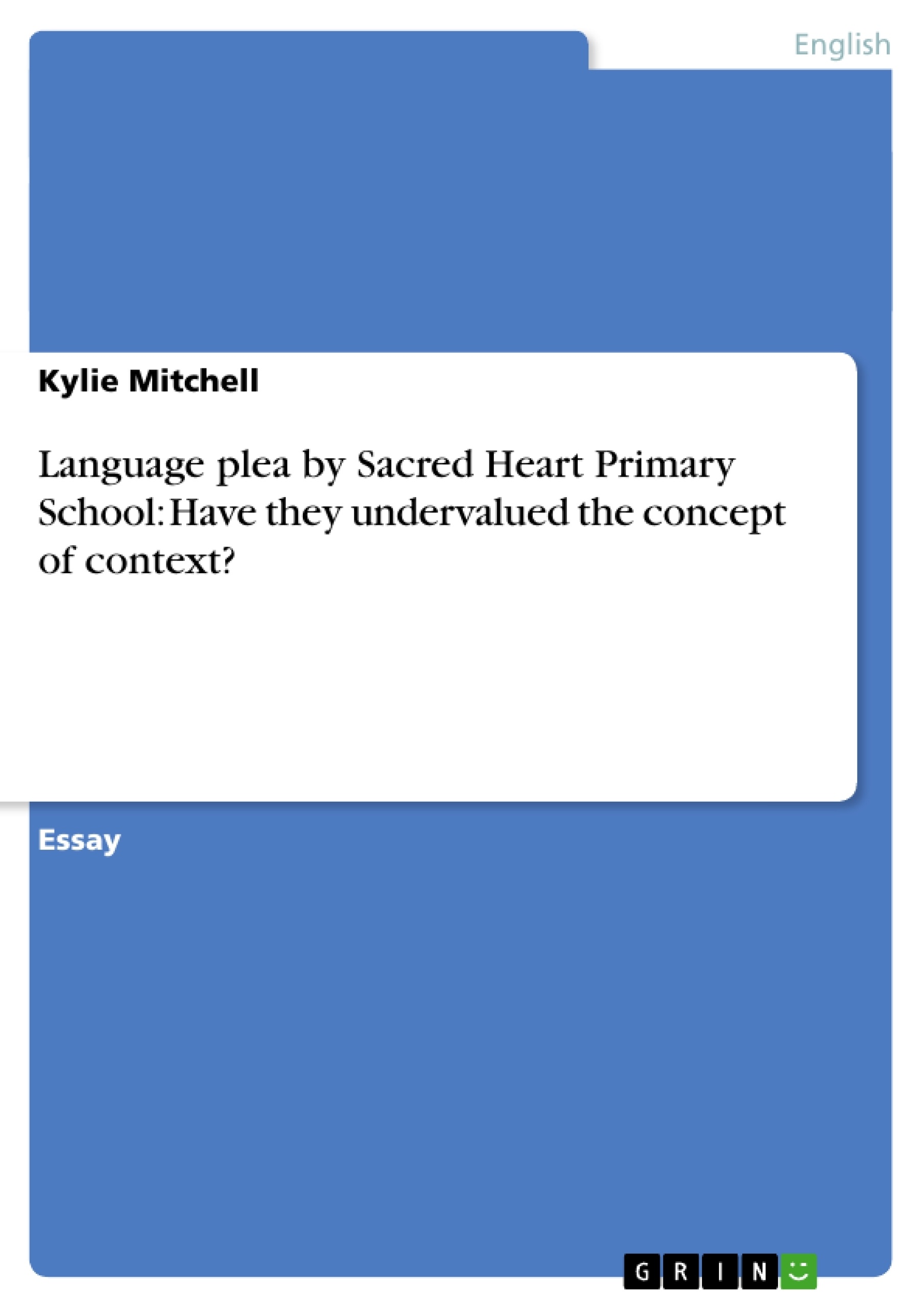[...] The transcript above represents two children having a minor argument before school. We can
immediately see that the children have used their local Teeside accent and dialect. Of course, we can
all understand the language used by the children in this context. But do we judge them and assume
they are receiving a poor education simply because their pronunciation is different to the version
that the Queen, politicians and national newsreaders use? Can we assume they are receiving a poor
education from the fact that both children responded to their mother with “nowt” as opposed to
“nothing?”
Inhaltsverzeichnis (Table of Contents)
- Language plea by Sacred Heart Primary School: Have they undervalued the concept of context?
- Mrs Walker’s plea for Standard English
- The importance of context
- The danger of labelling a child's language as “incorrect”
- Mrs Walker and the power of Standard English
- Children are more aware of context than we might think
- The importance of language
- Context and its importance
Zielsetzung und Themenschwerpunkte (Objectives and Key Themes)
This article examines the request by the headteacher of Sacred Heart Primary School in Middlesbrough, Mrs Walker, to parents to encourage their children to use Standard English at home. It explores the potential benefits and drawbacks of this approach, particularly in relation to the importance of context and code switching.- The role of Standard English in education and society
- The importance of context in language use
- The potential negative impact of labeling regional language as "incorrect"
- The benefits of code switching and understanding different language registers
- The need to foster a positive attitude towards language diversity
Zusammenfassung der Kapitel (Chapter Summaries)
- The article begins with a conversation between two children using their local Teeside dialect. The author uses this example to highlight the diversity of language and how it can be influenced by local accents and dialects.
- The article then discusses Mrs. Walker's request to parents to encourage their children to use Standard English, presenting a list of phrases and pronunciations she considers "incorrect." The author argues that Mrs. Walker's approach is overly prescriptive and fails to acknowledge the importance of context.
- The author explores the importance of context in language use, arguing that using regional dialects in informal settings does not hinder communication and should not be discouraged.
- The author examines the potential negative impact of labeling regional language as "incorrect," highlighting concerns raised by experts, such as Dr. Simon Gibbons and Professor Paul Kerswill.
- The author emphasizes the importance of teaching children to understand context and code switch effectively, allowing them to adapt their language appropriately for different social situations. This approach fosters language awareness and appreciation for the diverse forms of language.
Schlüsselwörter (Keywords)
This article centers around key concepts such as Standard English, regional dialects, context, code switching, linguistic prescriptivism, and the importance of fostering language diversity and awareness. It explores the influence of language on social and economic outcomes, highlighting the need for a balanced approach to language education that respects the value of different language forms.Frequently Asked Questions
Why did Sacred Heart Primary School ask parents to use Standard English?
The headteacher, Mrs. Walker, wanted to improve students' educational prospects by encouraging the use of "correct" English at home.
What is "code switching"?
It is the ability to adapt one's language or dialect depending on the context, such as using Standard English in a job interview and a regional dialect with friends.
Is regional dialect "incorrect"?
The author argues that regional dialects are not incorrect but are a valid form of communication that depends on the social context.
What is the danger of labeling a child's language as wrong?
It can negatively impact a child's self-esteem and identity, potentially making them feel that their background is undervalued.
Are children aware of language context?
Yes, research suggests children are often more aware of when to use different registers of language than adults might assume.
- Citation du texte
- Kylie Mitchell (Auteur), 2013, Language plea by Sacred Heart Primary School: Have they undervalued the concept of context?, Munich, GRIN Verlag, https://www.grin.com/document/209704



